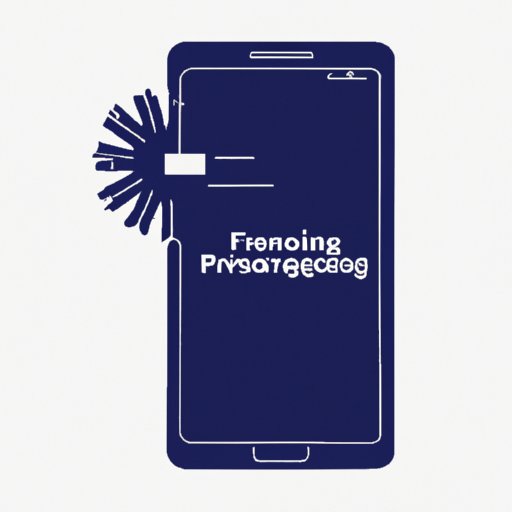Why Does My Phone Keep Freezing?
Have you ever found yourself trying to use your phone, only to find it completely unresponsive? It’s a frustrating experience, and it’s one that’s becoming increasingly common. In this article, we’ll explore some of the most common causes of phone freezing and what you can do to troubleshoot the issue.
Common Causes of Freezing
There are many reasons your phone can freeze. Below are four of the most common causes:
Overheating
Phones generate a lot of heat, and if they get too hot, performance can suffer. If your phone overheats, it can cause it to freeze. One common cause of overheating is using your phone while it’s charging, particularly if you’re using a low-quality charger or one that’s damaged.
Low memory or storage
If your phone has low memory or storage, it can cause it to freeze. When your phone runs out of space, it can no longer operate properly, leading to performance issues.
Background apps and processes
If you have too many apps open or running in the background, it can cause your phone to freeze. The more processes your phone has to manage, the more likely it is to encounter performance issues.
Malware or virus
If your phone has been infected with malware or a virus, it can cause it to freeze. Malicious software can interfere with your phone’s performance and make it difficult to use.
Troubleshooting Tips
If your phone is freezing, here are some troubleshooting tips you can try:
Restarting the phone
Sometimes, a simple restart can solve the issue. Turning your phone off and on again can end any processes that are causing your phone to freeze.
Clearing cache and data
If your phone is running low on memory or storage, clearing the cache and data can help. This removes temporary files and other clutter, freeing up space for your phone to operate effectively.
Removing unnecessary apps
If you have too many apps installed on your phone, it can lead to performance issues. Try removing any apps you no longer need or use to help improve your phone’s performance.
Running a virus scan
If you suspect your phone has been infected with malware or a virus, running a scan can help. Many antivirus apps are available for both iOS and Android phones and can help detect any malicious software.
Factory reset
As a last resort, you can perform a factory reset on your phone. This will erase all of your data and applications and return your phone to its original state. While this can be time-consuming, it can also help resolve more complex issues.
App-Specific Freezing
Certain apps can cause your phone to freeze more than others. Below are some of the most common apps responsible for freezing and some reasons why they may cause issues:
Social media apps
Social media apps like Facebook and Instagram are known to consume a lot of memory and storage. If you have many friends or follow many accounts, these apps can quickly become memory hogs, leading to performance issues.
Games
Games, particularly graphically-intensive ones, can also cause your phone to freeze. Like social media apps, they consume a lot of memory and storage and can put a strain on your phone’s resources.
E-mail clients
E-mail clients like Gmail or Apple Mail can also cause issues if you have many e-mails that need to be loaded. These apps can quickly consume memory and storage, leading to performance issues.
Device-Specific Freezing
Certain phone models or brands are more prone to freezing than others. Below are some examples of phones that may be more susceptible to freezing:
Older iPhones
Older iPhone models, particularly those released more than three years ago, can be more prone to freezing. As Apple releases new versions of iOS and apps become more resource-intensive, older models can begin to struggle.
Mid-range Android phones
Mid-range Android phones, particularly those with less than 4GB of RAM, can struggle to run many apps simultaneously. This can lead to performance issues, including freezing.
Low-cost smartphones
Low-cost smartphones, particularly those that use unoptimized operating systems, are more prone to freezing. These devices often have lower-quality hardware and are not built to handle demanding apps or processes.
Update Your Phone
Keeping your phone’s operating system up-to-date is crucial for maintaining performance and preventing freezing. Below are some ways that updates can help:
Optimizing resources
Operating system updates can include optimizations that help your phone use its resources more effectively. This can lead to improved performance and fewer issues with freezing.
Fixing bugs and vulnerabilities
Updates often include bug fixes and security patches that can help your phone run smoother. This can reduce the likelihood of performance issues and improve overall phone health.
Preventing Future Freezing
Below are some best practices for preventing freezing and maintaining phone health:
Close apps when not in use
Closing apps when you’re not using them can help free up memory and prevent your phone from becoming bogged down.
Keep your phone cool
Avoid using your phone while it’s charging and try to keep it out of direct sunlight or other hot environments. This can help prevent overheating and potential freezing issues.
Regularly uninstall unused apps
Apps that you’re not using can still consume resources on your phone. Regularly uninstalling unused apps can help prevent performance issues, including freezing.
Avoid “jailbreaking” your phone
Jailbreaking your phone can give you greater control over your device, but it can also introduce security vulnerabilities and other issues that can cause performance problems.
Conclusion
In conclusion, phone freezing is a common problem that can be caused by a variety of factors. By understanding the common causes and using the troubleshooting tips outlined in this article, you can take proactive steps to prevent freezing issues on your phone. Remember to keep your phone updated, practice good phone hygiene, and follow best practices for phone usage to maintain optimal performance and prevent issues down the line.
